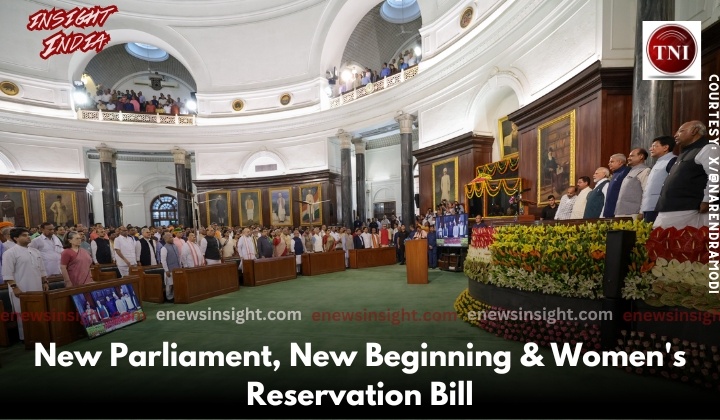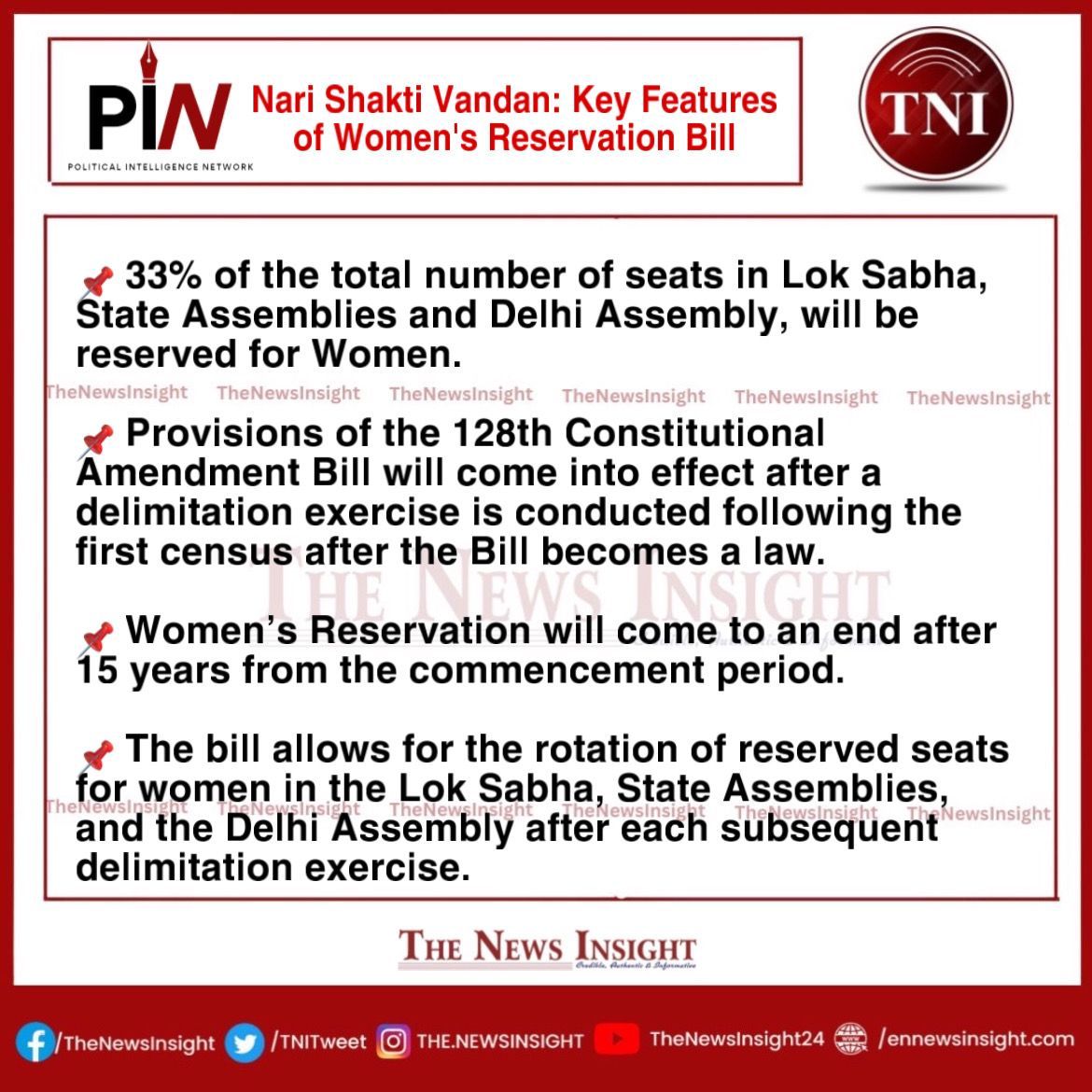New Delhi-TNI Bureau: In a historic move, Prime Minister Narendra Modi urged the Rajya Sabha to pass the Women’s Reservation Bill during a special Parliament session. The bill seeks to reserve one-third of seats in the Lok Sabha and state assemblies for women, promoting gender equality in politics.
PM Modi emphasized women’s empowerment and the strengthening of democracy through increased female representation while addressing the Upper House. The new Parliament building, inaugurated in May 2023, reflects India’s heritage and democratic traditions.
The Women’s Reservation Bill, a long-debated issue, has seen previous unsuccessful attempts. PM Modi acknowledged past efforts, including those during Atal Bihari Vajpayee’s tenure, and reaffirmed his government’s commitment to passing the bill into law.
Also read: TNI WhatsApp Group Voting on I.N.D.I.A. Bloc’s ban on TV Anchors
The Prime Minister and Law Minister Arjun Ram Meghwal emphasized unity in passing the Constitutional Amendment bill, which aims to increase women’s representation in the Lok Sabha from 82 to 181. PM Modi urged MPs to prioritize national development over party interests in the Parliament.
Key Highlights from the Special Parliament Session
- During the session, Prime Minister Narendra Modi addressed lawmakers in both the old and new Parliament buildings.
- In his address, he stressed the importance of focusing on larger issues as India enters the 25 years of Amrit Kaal, leaving behind minor concerns. He urged MPs to recommit to the goal of making India a developed nation by 2047, viewing the new Parliament building’s inauguration as a significant step toward a promising future.
- Furthermore, PM Modi suggested that the old Parliament building be officially named ‘Samvidhan Sadan.’ He also highlighted India’s prominent role as the voice of the global south in the G20 summit.
- He highlighted September 19, 2023, as a significant day when both houses convened in the new Parliament building, symbolizing a fresh start.
- The special Parliament session marked an important moment in Indian politics, with the introduction of the Women’s Reservation Bill and the inauguration of the new Parliament building symbolizing a new chapter in the nation’s democratic journey.
Women’s Reservation Bill
The Women’s Reservation Bill, officially named the 128th Constitutional Amendment Bill, 2023, is proposed legislation by the Narendra Modi government in India. It seeks to enhance women’s representation in the Indian political system. Here are its key points:
- Objective: The primary objective of the bill is to provide 33% reservation for women in the Lok Sabha (the lower house of India’s Parliament) and in all state Legislative Assemblies. This reservation includes one-third of the seats reserved for Scheduled Castes (SC) and Scheduled Tribes (ST) and one-third of the total seats in the general category.
- Implementation: The reservation of seats for women will be implemented after the completion of the delimitation exercise based on the first Census conducted after the passage of the bill. Delimitation is the process of defining the boundaries of constituencies for elections.
- Duration: The bill mandates women’s reservation for 15 years from the commencement of the Act. However, Parliament has the authority to extend this reservation further if deemed necessary.
- Rotation: Seats reserved for women will be rotated only after each subsequent delimitation exercise, as determined by Parliament through law.
- Amendments: The bill seeks to amend various articles in the Indian Constitution, including Article 330 A (to reserve seats for women in the Lok Sabha), Article 332 A (for women’s reservation in Legislative Assemblies), and Article 239 AA (related to the Legislative Assembly of the National Capital Territory of Delhi).
- Prime Minister’s Support: Prime Minister Narendra Modi introduced the bill, emphasizing its significance for increasing women’s representation in legislatures. He named it ‘Nari Shakti Vandan Adhiniyam,’ which translates to ‘Act to worship women’s power.’
- Historical Context: The bill has a long history of being proposed and discussed in Indian politics. Various governments, including those led by different political parties, have attempted to pass similar legislation over the years. However, it has faced challenges in the legislative process.
- Debate and Opposition: There has been ongoing debate and opposition to the Women’s Reservation Bill in the past, with different political parties expressing varying views on its provisions.
- Recent Introduction: The bill was introduced in the Lok Sabha, and its fate will be determined through the parliamentary process.



Comments are closed.